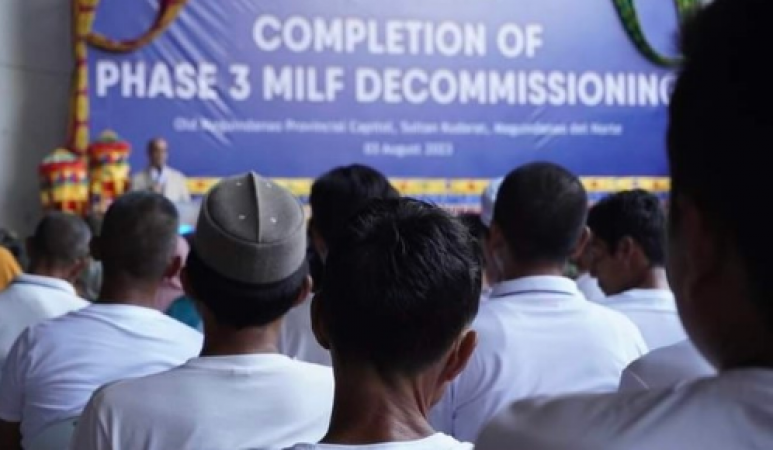
Manila: The decommissioning of more than 1,000 Moro Islamic Liberation Front fighters on Thursday marked a significant advancement in the implementation of a peace agreement between the Philippine government and the country's unruly Muslim south, which had long sought independence from Manila.
After nearly 40 years of conflict, the government and the Moro Islamic Liberation Front reached a permanent cease-fire agreement in 2014. Since then, the region of Bangsamoro, which includes areas of Mindanao that are primarily Muslim, has been engaged in a peace process.
The Moro National Liberation Front, the oldest Muslim separatist movement in Mindanao, had an armed breakaway group called MILF that carried on fighting even after its parent group signed a peace accord with Manila in the 1990s. Only in 2014 did MILF fighters consent to handing over their weapons in exchange for Bangsamoro's independence.
Also Read: Rights Groups Rally for Unbiased Probe into Greek Migrant Ship Incident
The 40,000 MILF combatants to be decommissioned as part of the 2014 peace agreement must also surrender their weapons and put them out of commission.
The number of decommissioned fighters increased by 1,301 on Thursday, bringing the total to over 26,000, or more than 65 percent of the target, according to the autonomous Muslim region BARMM.
"This event shows that the peace process in the Southern Philippines has been successful," In a ceremony on Thursday, BARMM Chief Minister Ahod "Al-Hajj Murad" Ebrahim said, "The MILF recognises that the decommissioning process is a significant component of the normalisation track under the comprehensive agreement on the Bangsamoro.
Also Read: A significant church in the Ukrainian city of Kherson is struck by Russian shelling
"For some, the process of decommissioning might seem cumbersome, but may I remind you all that this process takes some time because we are not only changing the lives of combatants individually and making them productive members of our society, (but just as) importantly, changing all communities throughout the BARMM to become peaceful and progressive."
President Ferdinand Marcos Jr. mentioned the Bangsamoro peace process in his State of the Nation Address last month, saying he was "proud of the progress that BARMM has taken."
Carlito Galvez Jr., the presidential adviser on peace, reconciliation, and unity, previously stated that it was "extremely important" to build on the peace gains and ensure ongoing progress.
He added that the peace agreement is "on top of the Marcos administration's" agenda.
According to BARMM Chief Minister Ebrahim, the completion of the entire decommissioning procedure will mark the formal conclusion of the peace agreement.
We will sign an exit agreement once the commitment has been fully met, according to Ebrahim.
Also Read: US calls on the rest of the world to urge Russia to stop 'blackmailing' it with Ukrainian grain
BARMM is currently pleading with Manila to expedite other steps in the decommissioning procedure, such as the creation of infrastructure in the area.
Because many of the other normalisation components have not yet been completed or begun, "we call on the national government to expedite them," Ebrahim said. Because a lack of resources to restore normalcy is the real problem. We therefore request that it be expedited.
Residents of Bangsamoro chose to have more autonomy as part of the peace process in a referendum that was held in 2019. The region will elect its legislature and executive in 2025, marking the conclusion of the transition period